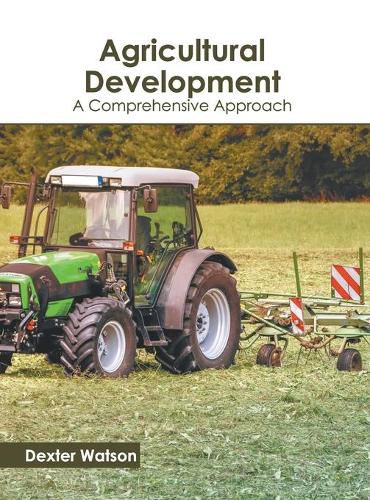Readings Newsletter
Become a Readings Member to make your shopping experience even easier.
Sign in or sign up for free!
You’re not far away from qualifying for FREE standard shipping within Australia
You’ve qualified for FREE standard shipping within Australia
The cart is loading…






It is estimated that by the end of the 21st century human population would reach an estimated 10 to 11 billion. To compensate for the ensuing food and energy shortage, it is imperative that measures should be taken to initiate a global phenomenon for agricultural development. Modern agriculture is heavily dependent on intensive agricultural practices. Relying exclusively on a small number of productive crops can potentially lead to significant loss of biodiversity. Therefore, measures such as efficient pest control, research initiatives, support to crop producers, engagement with the latest production techniques and preservation of diversity need to be adopted. Developing crop varieties that are more resilient to abiotic stresses, enhancing livestock health and productivity by improving animal genetics and veterinary care, and improved crop and natural resource management are strategies that can provide global food and energy security. The book studies, analyzes and upholds the pillars of agricultural development and its utmost significance in modern times. The various studies that are constantly contributing towards advancing technologies and evolution of agriculture are examined in detail. This book will prove to be immensely beneficial to agrologists, agroeconomists, horticulturists, agriculturists, conservationists, naturalists and students in this field.
$9.00 standard shipping within Australia
FREE standard shipping within Australia for orders over $100.00
Express & International shipping calculated at checkout
It is estimated that by the end of the 21st century human population would reach an estimated 10 to 11 billion. To compensate for the ensuing food and energy shortage, it is imperative that measures should be taken to initiate a global phenomenon for agricultural development. Modern agriculture is heavily dependent on intensive agricultural practices. Relying exclusively on a small number of productive crops can potentially lead to significant loss of biodiversity. Therefore, measures such as efficient pest control, research initiatives, support to crop producers, engagement with the latest production techniques and preservation of diversity need to be adopted. Developing crop varieties that are more resilient to abiotic stresses, enhancing livestock health and productivity by improving animal genetics and veterinary care, and improved crop and natural resource management are strategies that can provide global food and energy security. The book studies, analyzes and upholds the pillars of agricultural development and its utmost significance in modern times. The various studies that are constantly contributing towards advancing technologies and evolution of agriculture are examined in detail. This book will prove to be immensely beneficial to agrologists, agroeconomists, horticulturists, agriculturists, conservationists, naturalists and students in this field.